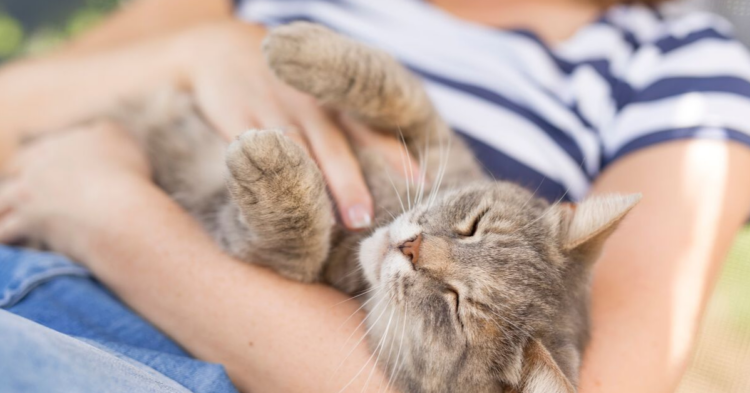Speaking from personal experience, I’ve found cats to be pretty aloof little balls of fur. They may seem sweet on the outside but don’t you dare try to cuddle them because they are not all about that life.
Maybe I’m just hanging around with the wrong cats though, because apparently these guys actually develop pretty strong bonds with their human caregivers. How strong? Well, about the same as a dog. Or a baby. Yeah, that strong.
A new study has found that our feline friends can become pretty attached to us, much in the same way dogs can.

According to PBS , Oregon State University animal psychologist Kristyn Vitale recently published a paper suggesting that domesticated cats form strong bonds with their caretakers, similar in the way dogs and babies do.
Vitale said most of us have the wrong impression of cats and their attitudes towards humans.
“A lot of people have these stereotypes about cats, that they’re aloof or solitary,” she said. “But they [also] use their owners as a source of security when they’re stressed out.”
In order to come to this conclusion, Vitale and her team conducted an experiment with 70 cats.

The cats were aged 7-8 months, and spent two minutes alone in a room with their caregiver before that person then left for two minutes. Then, they returned for a two-minute reunion.
After examining footage of these reunions, researchers determined that cats with secure attachments displayed a “reduced stress response and contact-exploration balance with the caretaker.”
Kittens with insecure attachment, 35.7 percent of them, remained stressed, even after their humans returned to the room.

Those cats were categorized even further into ambivalent, avoidance, or having an approach/avoidance conflict.
In order to find out if the kittens’ attachment continues into adulthood, researchers continued to study the 38 securely attached cats over the span of one year.
Researches found that “distinct attachment styles were evident in adult cats, with a distribution similar to the kitten population (65.8% secure, 34.2% insecure).”

So basically, even when they were no longer kittens, these cats were still exhibiting strong attachments to their human owners.
These results were compared to similar studies conducted with babies and dogs, and it was discovered that they share strikingly similar results, too.
Which means that although we’d like to think our happy-go-lucky dogs care more about us than our indifferent, “leave-me-alone” cats, some actually care very deeply about us.
h/t: PBS , Current Biology
















































